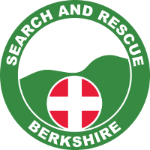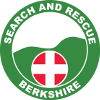FOOT SEARCHES - BOOTS ON THE GROUND
Thames Valley Police (TVP) deals with a significant volume of high-risk missing person reports each year. While many cases are swiftly resolved, others raise serious concerns due to their prolonged nature. In such instances, Berkshire Lowland Search and Rescue is often called upon to provide expert missing person search capabilities.
With a dedicated team comprising over 70 Search Technicians, we can reliably mobilize 30 or more volunteers at any time, day or night. When TVP alerts us to a missing person situation, our emergency response system immediately notifies all team members. This notification includes a concise description of the missing individual and a designated meeting point (referred to as the RV).
Our primary response asset in these situations is our ground-based search team. Nevertheless, we maintain the flexibility to deploy our water, bicycle, or drone teams when the specific characteristics of the search area necessitate such resources.
INCIDENT CONTROL UNIT & PLANNING
Our Incident Control Unit (ICU) typically arrives at the scene first. This specialized van serves as our central operations hub and is equipped with advanced digital mapping, planning, and communication systems. These resources empower our Search Planner with essential tools and a centralized base of operations. Collaborating closely with the Police Search Advisor (PolSA), they meticulously strategize based on the missing person's profile, the circumstances surrounding their disappearance, and the unique aspects of the search area.

Incident Control Unit - ICU

Search Management and Planning
FOOT TEAM
Our primary asset during a search operation is our dedicated foot teams. These teams are responsible for executing systematic searches of the designated area, typically comprised of multiple teams, each with distinct roles and responsibilities.
- Team Leader: The team leader assumes a pivotal role in ensuring the overall safety and effectiveness of the search mission. They receive a comprehensive briefing from the Incident Control Unit (ICU) and subsequently brief their team members about critical aspects, including the search area particulars, characteristics of the missing person, and the team's specific objectives.
- Communications: The communications technician plays a crucial role in maintaining seamless communication channels between the team leader and the ICU. They are responsible for promptly reporting any significant findings or developments that could impact the mission.
- Navigation: The navigation technician is entrusted with the vital task of keeping the team on the correct course. They employ a combination of maps, compasses, and GPS devices to accurately track the team's progress and pinpoint the designated search area.
- Medic: Our medic is a key member responsible for providing immediate first-aid medical care to the missing person if required. Equipped with essential life-saving medical supplies, they are trained to administer critical medical assistance. Additional supplies and equipment can be requested as needed, ensuring our ability to respond effectively before emergency services arrive on the scene.
Once the team leader has absorbed the briefing from the ICU, they proceed to brief their team members and assign them their respective roles before embarking on their mission to the initial search area coordinates. Depending on whether it's an urban or rural search, careful consideration is given to the team's safety. Rural searches often entail challenging terrain, dense vegetation, uneven ground, and various hazards, often conducted during nighttime hours and in all weather conditions. These searches can extend over many hours, even days, underscoring the importance of our technicians carrying a diverse range of equipment to cater to their needs. This includes first-aid kits, phone battery backups, extra clothing, provisions, and water.
Our primary objective is to locate the missing person as swiftly as possible and ensure their safety. In situations requiring immediate medical attention, our team is trained to deliver first-responder emergency medical care, encompassing procedures such as CPR and wound treatment. Our medics carry essential medical supplies, and in cases requiring additional medical resources, we can swiftly request support from our control vehicle, including extra team members to bolster the scene's security and support efforts.

Search Team Briefing

Search Technician
SEARCH TECHNICIAN - SKILLS AND TRAINING
Becoming a Search Technician is a commitment that demands extensive dedication, encompassing a wide range of skills and knowledge areas. The training process is intensive, covering essential aspects such as search techniques, understanding missing person behavior, proficient use of specialized equipment, and providing crucial first responder medical care, among others. While initial training provides a solid foundation, advanced skills are honed through regular weekly training sessions and specialized courses in areas like Bank search, Bike search, Drone search, and Forensic scene preservation.
Our organization's rich history, established since 1979, has blessed us with a wealth of highly experienced members who contribute significantly to our collective expertise. Some of these individuals come from diverse backgrounds, including medicine, law enforcement, and the military, which enables them to share invaluable skills and knowledge within the team.
All Search Technicians undergo thorough police background checks and receive training in accordance with national standards as set by Lowland Rescue. They demonstrate competence in a broad spectrum of critical areas, including:
- Profiling various missing person behaviors, whether it's a child, a despondent individual, someone at risk of self-harm, or a child in distress.
- Adhering to different search types, such as Hasty, Efficient, and Thorough, based on the urgency and nature of the situation.
- Applying effective search techniques, including comprehensive area scanning and strategic searcher spacing.
- Implementing diverse search patterns to ensure thorough coverage of the designated search area.
- Maintaining personal safety in extreme weather conditions, including managing risks associated with hyperthermia and hypothermia.
- Recognizing environmental hazards like water bodies and possessing the skills for casualty care and immediate first responder medical assistance.
- Proficiency in rescue techniques, such as stretcher usage or airlift procedures.
- Expertise in scene preservation and the careful handling of forensic evidence.
- Knowledge of communication protocols and procedures.
- Accurate recording and transmission of critical information.
- Navigation skills using traditional methods (map and compass) and modern digital mapping tools.
- Proper utilization of Personal Protective Equipment (PPE) to safeguard against various hazards and adverse weather conditions.
- Collaborating effectively within the framework of Normal Operation Plans and Emergency Action Plans.
- Coordination within the broader Search and Rescue (SAR) operation and effective teamwork with other involved agencies.

Woodland Search

Search Team on route
CALLOUTS
Our Search Technicians are all volunteers who generously contribute their time and effort without financial compensation. They stand ready to respond to callouts at any hour of the day, any day of the week, 24/7. They receive no monetary wages and cover their own expenses, including equipment and fuel costs. Their motivation stems from the profound satisfaction of being able to provide assistance to someone in dire need during a crisis, embodying the true spirit of selflessness and community service.
BBC RADIO BERKSHIRE
Katherine Bett reports on Berkshire Lowland Search and Rescue for the Andrew Peach show on BBC Radio Berkshire: https://www.bbc.co.uk/sounds/play/p0d9g15c


